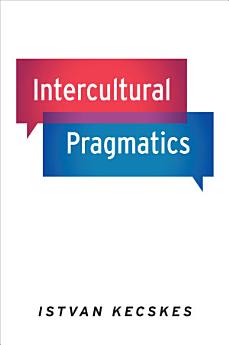Intercultural Pragmatics
2013 നവം · Oxford University Press
ഇ-ബുക്ക്
304
പേജുകൾ
family_home
യോഗ്യതയുണ്ട്
info
reportറേറ്റിംഗുകളും റിവ്യൂകളും പരിശോധിച്ചുറപ്പിച്ചതല്ല കൂടുതലറിയുക
ഈ ഇ-ബുക്കിനെക്കുറിച്ച്
Intercultural Pragmatics studies how language systems are used in social encounters between speakers who have different first languages and cultures, yet communicate in a common language. The field first emerged in the early 21st century, joining two seemingly antagonistic approaches to pragmatics research: the cognitive-philosophical approach, which considers intention as an a priori mental state of the speaker, and the sociocultural-interactional approach, which considers it as a post factum construct created by both speaker and hearer though conversation. Istvan Kecskes, an early proponent of intercultural pragmatics, was among the first to propose merging the two to form the socio-cognitive approach now core to the field. In Intercultural Pragmatics, the first book on the subject, Kecskes establishes the foundations of the field, boldly combining the pragmatic view of cooperation with the cognitive view of egocentrism in order to incorporate emerging features of communication. He argues that people cooperate by generating and formulating intention that is relevant to the given actual situational context. At the same time, however, because of their egocentrism they activate the most salient information to their attention in the construction and comprehension of utterances. Within this approach, interlocutors are considered as social beings searching for meaning with individual minds embedded in a socio-cultural collectivity, and intention is a cooperation-directed practice that is governed by relevance which depends on actual situational experience. Intercultural pragmatics is a rapidly-growing field, and the only subfield of pragmatics to incorporate features of intercultural interaction into mainstream pragmatics. This volume offers both a valuable synthesis of current research and a new way to think about pragmatics.
രചയിതാവിനെ കുറിച്ച്
Istvan Kecskes is Professor of Linguistics and education at the State University of New York, Albany. He is the President of the American Pragmatics Association and Editor-in-Chief of the journals Intercultural Pragmatics (De Gruyter), Chinese as a Second Language Research (De Gruyter) and the Mouton Series in Pragmatics. He is the co-editor of the Journal of Language Aggression and Conflict (Benjamins).
ഈ ഇ-ബുക്ക് റേറ്റ് ചെയ്യുക
നിങ്ങളുടെ അഭിപ്രായം ഞങ്ങളെ അറിയിക്കുക.
വായനാ വിവരങ്ങൾ
സ്മാർട്ട്ഫോണുകളും ടാബ്ലെറ്റുകളും
Android, iPad/iPhone എന്നിവയ്ക്കായി Google Play ബുക്സ് ആപ്പ് ഇൻസ്റ്റാൾ ചെയ്യുക. ഇത് നിങ്ങളുടെ അക്കൗണ്ടുമായി സ്വയമേവ സമന്വയിപ്പിക്കപ്പെടുകയും, എവിടെ ആയിരുന്നാലും ഓൺലൈനിൽ അല്ലെങ്കിൽ ഓഫ്ലൈനിൽ വായിക്കാൻ നിങ്ങളെ അനുവദിക്കുകയും ചെയ്യുന്നു.
ലാപ്ടോപ്പുകളും കമ്പ്യൂട്ടറുകളും
Google Play-യിൽ നിന്ന് വാങ്ങിയിട്ടുള്ള ഓഡിയോ ബുക്കുകൾ കമ്പ്യൂട്ടറിന്റെ വെബ് ബ്രൗസർ ഉപയോഗിച്ചുകൊണ്ട് വായിക്കാവുന്നതാണ്.
ഇ-റീഡറുകളും മറ്റ് ഉപകരണങ്ങളും
Kobo ഇ-റീഡറുകൾ പോലുള്ള ഇ-ഇങ്ക് ഉപകരണങ്ങളിൽ വായിക്കാൻ ഒരു ഫയൽ ഡൗൺലോഡ് ചെയ്ത് അത് നിങ്ങളുടെ ഉപകരണത്തിലേക്ക് കൈമാറേണ്ടതുണ്ട്. പിന്തുണയുള്ള ഇ-റീഡറുകളിലേക്ക് ഫയലുകൾ കൈമാറാൻ, സഹായ കേന്ദ്രത്തിലുള്ള വിശദമായ നിർദ്ദേശങ്ങൾ ഫോളോ ചെയ്യുക.






